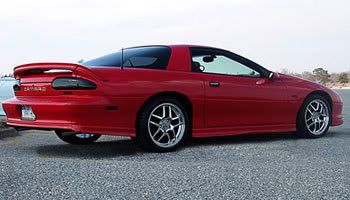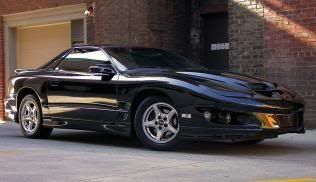does the deletion of the AIR and EGR add hp/torque? im trying to learn about these systems now because they are one thing that i still dont know much about.
Announcement
Collapse
No announcement yet.
!air !egr
Collapse
X
-
Re: !air !egr
quoted from Wikipedia
In a typical automotive spark-ignited (SI) engine, 5 to 15 percent of the exhaust gas is routed back to the intake as EGR (thus comprising 5 to 15 percent of the mixture entering the cylinders). The maximum quantity is limited by the requirement of the mixture to sustain a contiguous flame front during the combustion event; excessive EGR in an SI engine can cause misfires and partial burns. Although EGR does measurably slow combustion, this can largely be compensated for by advancing spark timing. The impact of EGR on engine efficiency largely depends on the specific engine design, and sometimes leads to a compromise between efficiency and NOx emissions. A properly operating EGR can theoretically increase the efficiency of gasoline engines via several mechanisms:
Reduced throttling losses. The addition of inert exhaust gas into the intake system means that for a given power output, the throttle plate must be opened further, resulting in increased inlet manifold pressure and reduced throttling losses.
Reduced heat rejection. Lowered peak combustion temperatures not only reduces NOx formation, it also reduces the loss of thermal energy to combustion chamber surfaces, leaving more available for conversion to mechanical work during the expansion stroke.
Reduced chemical dissociation. The lower peak temperatures result in more of the released energy remaining as sensible energy near TDC, rather than being bound up (early in the expansion stroke) in the dissociation of combustion products. This effect is relatively minor compared to the first two.
It also decreases the efficiency of gasoline engines via a few more mechanisms:
Reduced intake charge density. EGR tends to heat the intake charge. This means a bigger piston or stroke must be used to induct the same amount of fuel and air mixture. This results in a bigger and heavier engine.
Reduced specific heat ratio. A lean intake charge has a higher specific heat ratio than an EGR mixture. A reduction of specific heat ratio reduces the amount of energy that can be extracted by the piston.
EGR is typically not employed at high loads because it would reduce peak power output, and it is not employed at idle (low-speed, zero load) because it would cause unstable combustion, resulting in rough idle.
Removing the air injection will not hurt performance but will hurt your emmisions output whether or not it makes more power with out it i couldnt tell ya but if your that worried about it get some headers
-
Re: !air !egr
Essentially an emissions “add-on” installed by the automakers to help further clean up emissions, the air injection system supplies air to the exhaust stream to promote additional burning of exhaust gases such as hydrocarbons (abbreviated as HC) and carbon monoxide (abbreviated as CO). Some systems also supply air to the catalytic converter to further reduce HC, CO and oxides of nitrogen (NOx), a major contributor to photochemical “smog.”
Comment
-
Re: !air !egr
i disconnected my air system on my 3.4 didnt notice any change i also blocked my egr and it seemed to hurt power the secound post is from the car care website(did i mention I work for a emmisions testing company) any way google is your friend good luck.
Comment
-
Re: !air !egr
not always some headers do not have provisons for egr and air others due. I just ment the only way your loosing power from an air system is the additional volume being injected into the exhaust manifolds and installing headers would make that extra volume irrelivent.Originally posted by 99BlackW68does the installation of headers in turn delete the egr system?
Comment
-
Re: !air !egr
i know you have a lot of posts but are you trying to tell me that my 3.4 m5 doesnt have air injection?Originally posted by Tom Rsyou do not have an air system on your motor unless you are talking about air conditioning, which is totally different
Comment
-
Re: !air !egr
I am talking about the 3.8l, But i am not positive if the 3.4 has one either, someone will have to chime in here.Originally posted by auto666i know you have a lot of posts but are you trying to tell me that my 3.4 m5 doesnt have air injection?1997 Camaro LS1 RS
1994 Camaro - Sold
1999 Trans am Vert - Sold

A Few Mods....
Comment








Comment